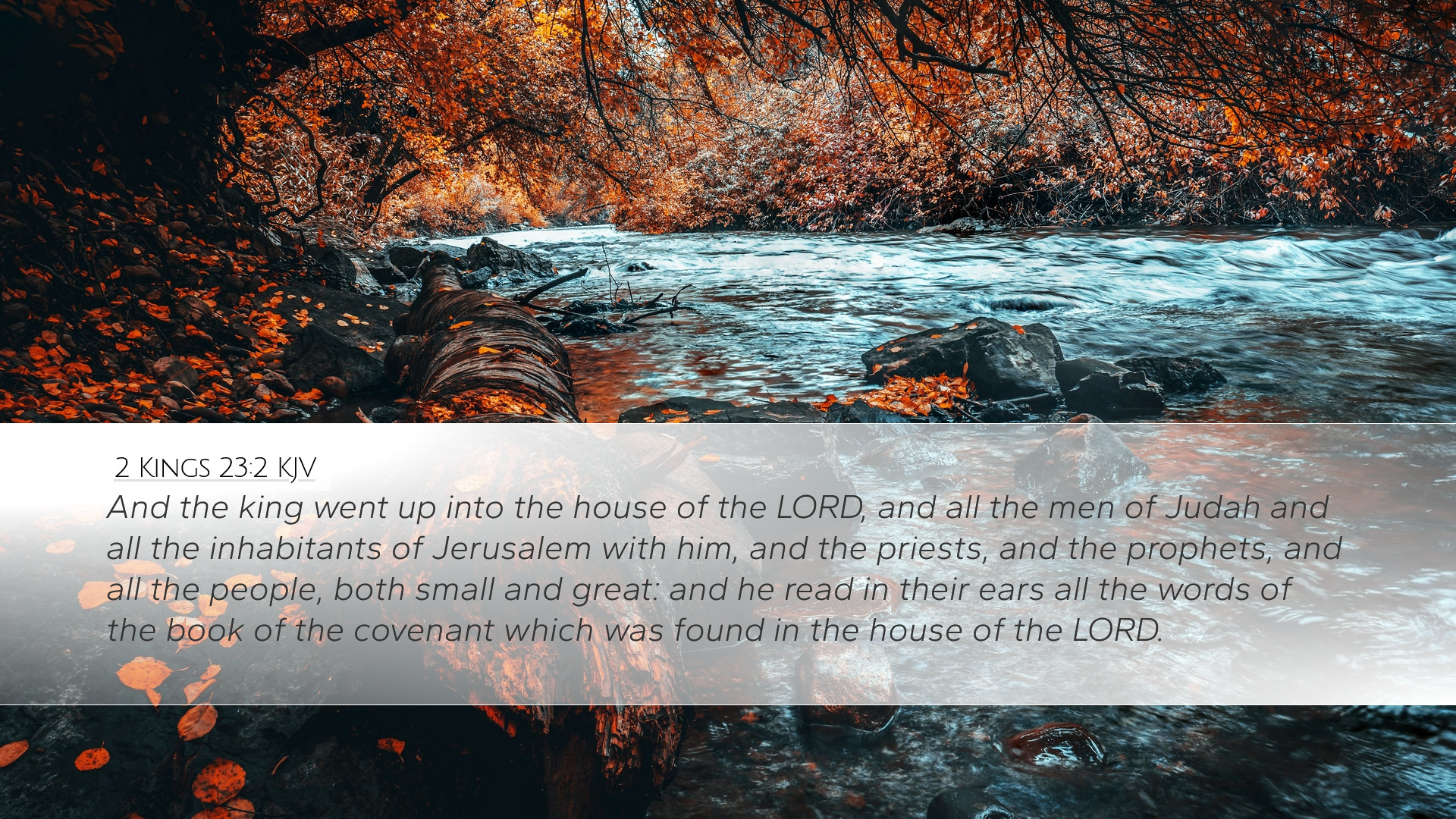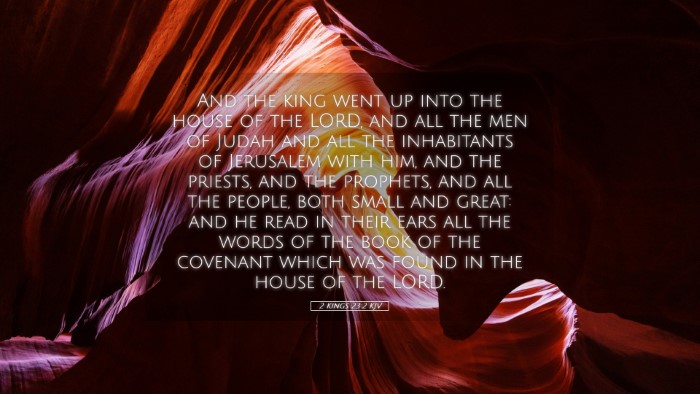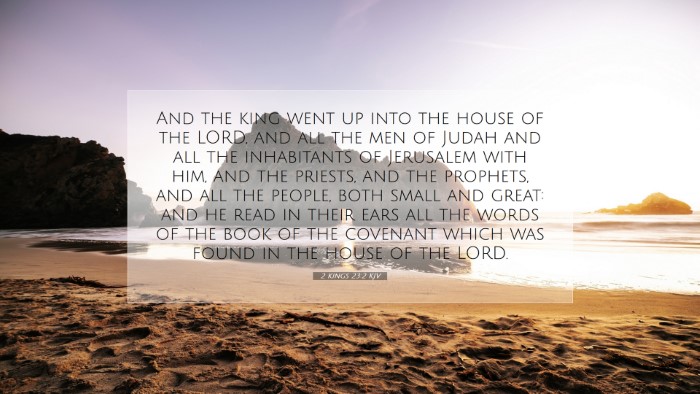Commentary on 2 Kings 23:2
Verse Context: 2 Kings 23:2 describes a pivotal moment in Israel's history, where King Josiah gathers the elders of Judah and Jerusalem, reading the Book of the Covenant found in the temple. This verse encapsulates a larger narrative about reform, renewal, and the importance of returning to God's Word.
Exegesis and Interpretation
This verse serves as a crucial entry point for understanding the reign of Josiah, who is often celebrated for his zealous reforms aimed at restoring true worship in Israel. Referring to the context, we can draw insights from various public domain commentaries.
Matthew Henry's Commentary
Matthew Henry emphasizes the significance of Josiah's reforms in the wake of the moral decay that had afflicted Israel. He points out that the king not only reads the law but does so in the presence of all the people, signifying a collective commitment to God’s Word. This act of public reading symbolizes not only accountability but also unity as the people recommit their lives to God:
- Public Declaration: The act of gathering all people to hear the law establishes Josiah's role as a leader who prioritizes the Word of God.
- Response to Revelation: Henry states that the discovery of the Book of the Law prompted a national awakening, highlighting the transformative power of the Scriptures.
Albert Barnes' Notes on the Bible
Albert Barnes provides valuable insights into the sociopolitical implications of this verse. He observes that the reading of the law occurred at a time when the nation was ripe for reformation. The laws that were professed had largely been neglected. Josiah’s actions did not merely signify adherence to tradition but were a necessary corrective to the spiritual crisis of the time:
- Leadership in Reform: Barnes illustrates how Josiah's leadership was instrumental. He did not wait for the people's spiritual condition to improve on its own, but actively engaged in spiritual restoration.
- Collective Participation: The significance of gathering all people, from the great to the least, indicates that reformation should be a community effort rather than an isolated endeavor.
Adam Clarke's Commentary
Adam Clarke delves into the characteristics of Josiah's character as a reformer. He notes that Josiah’s youth did not hinder his spiritual authority; rather, it equipped him with a zeal that was uncommon in older generations:
- Symbol of Hope: Clarke posits that Josiah represents a hopeful generation that could emerge from previous failures, igniting a spirit of revival.
- Reaction to God's Word: Clarke highlights the impact of the Scriptures, pointing out that the sincere reading of God’s law produces genuine repentance and a desire for restoration among the people.
Theological Reflections
This verse is not merely a historical account but also serves as a profound theological lesson. The reading of God's law can be seen as a reminder of several important aspects of the faith:
- Authority of Scripture: The gathering of people to hear God’s Word affirms the Bible's place as the ultimate authority in the life of the believer and the community.
- Need for Renewal: Just as Israel required reform, the modern church is called to periodically reevaluate its practices in light of Scriptural truths.
Practical Application
For pastors, theologians, and students of the Bible, 2 Kings 23:2 provides a framework for understanding the interplay between leadership and spiritual revival:
- Embrace of Scripture: Leaders are encouraged to prioritize the reading and teaching of the Bible in congregational settings, fostering a culture where God’s Word is central.
- Community Engagement: Just as Josiah included the entire community, contemporary leaders should seek to cultivate an environment where all members can engage with the Scriptures.
- Active Obedience: Effective reform is rooted in both hearing and doing; this calls for action upon the truths discovered in Scripture.
Conclusion
2 Kings 23:2 stands as a timeless call to return to the foundation of faith through the Scriptures. The insights garnered from commentaries encourage a holistic approach to understanding reform, leadership, and collective commitment to God. As Josiah demonstrated, revival begins with an earnest examination of the Word of God and a sincere response from its leaders and people.


